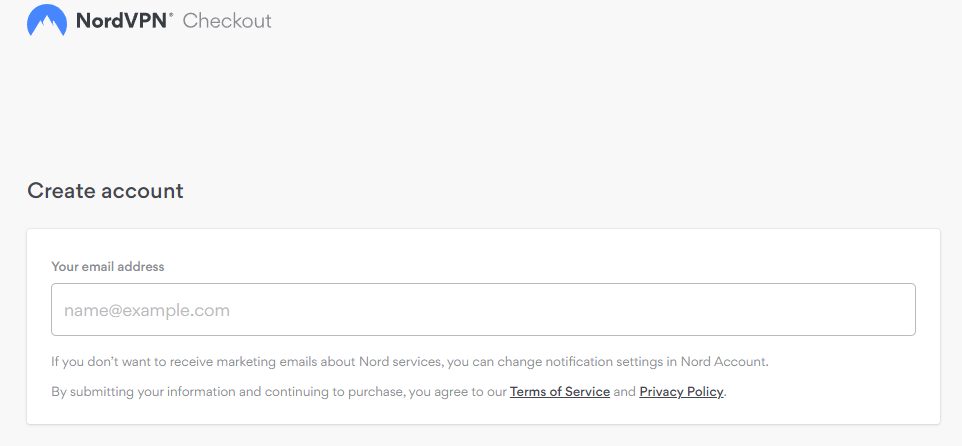Did you decide to purchase NordVPN? Do you wonder: How Do I Find NordVPN Logs?
In this article we will show you step by step how to make a purchase of new NordVPN subscription, set up account and start using NordVPN software! After guide we will answer some questions regarding using an VPN app.
Table of Contents
Here is how to purchase a NordVPN subscription
- Start by visiting NordVPN website, you can click here.
- Click on pricing tab at the top of the page, here you can see current plans, pricing and deals. Choose which NordVPN plan you prefer to purchase and then click “Get *name of the plan* button.
You can choose between standard plan (pure NordVPN service) or other plans that comes with NordPass or NordLocker services.
- Now you have to type your email adress that you will be using NordVPN with.

- Now you have to choose payment method which you want to use, and proceed with it.
- Well done! If you followed this guide nicely you purchased NordVPN subscription! Look at your email inbox, here you will find purchase confirmation email.
Now download NordVPN APP and start using it
After purchasing your VPN plan, head to this page to download the NordVPN app
Now you can click start and enjoy using VPN!
Click here to get the Best NordVPN Deal! 🔥Let’s get back to main question, How Do I Find NordVPN Logs?
Worth knowing
First, open up the ASDM and navigate to Configuration > Device Management > Logging > Syslog Setup. Check the “Enable Syslog Messages” box and click Apply.
Next, go to Configuration > Firewall > expand Advanced Features and double-click on System Settings. Scroll down to “IKEv1/IKEv2 Policy Based Routing Logging” and select “ALL”. Click Apply again.
Now all of your VPN traffic will be logged and you can view it by going to Tools > Monitoring > Syslog Messages. You can filter the results by various criteria, such as date/time range or message type (e.g., IKE messages only).
Worth knowing
The level of detail captured in VPN logs varies depending on the provider and the specific purpose of the log. For example, some providers keep detailed records of every website visited by their users while others only track which IP addresses were used to connect to the VPN service.
VPN logs can be useful for a variety of purposes. They can help identify problems with a VPN connection or pinpoint where bottle necks are occurring. Additionally, if law enforcement requests information from a VPN provider, logs may be used to investigate illegal activity.
Most importantly, VPN logs should never be used to snoop on users without their permission. Respect for user privacy is paramount among reputable providers. If you’re concerned about your privacy and want to make sure your activities are not being logged, choose a provider that offers a strict no-logs policy.
Worth knowing
The main reason why people use VPNs is to maintain privacy and security while online. However, it is important to keep in mind that even though a VPN encrypts your traffic, the company providing the service may still have access to your browsing data. This is why it is important to choose a reputable provider who has a strict no-logging policy.
Some countries require companies to keep detailed logs of their users’ activity. In these cases, opting for a provider based in a country with more lenient laws may not be enough to protect your privacy. If you are concerned about your privacy, it is best to consult with a lawyer or another expert before using any type of VPN service.
